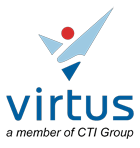Often, companies face significant challenges in protecting their data amid increasingly sophisticated cyber threats. DevSecOps integrates security at every stage of software development, from planning to deployment. This approach ensures that vulnerabilities are identified and addressed early, saving time, reducing costs, and ensuring safer applications.
So, what is DevSecOps and how can it help develop more efficient and secure software? Find out in this article.
What is DevSecOps?
DevSecOps stands for development, security, and operations. This practice integrates security at every stage of the software development process, from initial design to integration, testing, delivery, and deployment.
In traditional approaches, security is often applied at the end of the development cycle. As developers adopt Agile and DevOps methods to speed up development cycles, this traditional approach causes bottlenecks. Security issues handled at the end slow down overall development and extend release times.
DevSecOps ensures that security is a shared responsibility among developers, security teams, and IT operations. By addressing security issues as they arise, they are easier, faster, and cheaper to fix before production. This approach allows for the rapid and secure delivery of software without compromising security, aligning with the DevSecOps motto: “software, safer, sooner.”
What is the Difference Between DevSecOps and DevOps?
Although they sound similar, DevOps and DevSecOps have different focuses. Here are the key differences.
| Criteria | DevOps | DevSecOps |
| Focus | Development and operations | Development, security, and operations |
| Security | End of development cycle | Integrated from the start |
| Speed | Fast delivery, sometimes sacrificing security | Fast delivery with high security |
| Goal | Operational efficiency | Security and operational efficiency |
| Culture | Collaboration between development and operations teams | Collaboration between development, security, and operations |
| Tools | Development and operational tools | Development, operational, and security tools |
Why is DevSecOps Important?
DevSecOps is crucial because it effectively enhances security at every stage of application and software development. This method allows teams to detect vulnerabilities earlier, reduce repair costs, and accelerate launch times. Integration ensures that the resulting software is not only quickly deployed but also safer and compliant with industry regulations. With DevSecOps, companies can improve operational efficiency and ensure better application security, providing full confidence to users and meeting stringent industry standards.
Additionally, implementing DevSecOps helps build a culture of security awareness within teams. When all team members are responsible for security, better collaboration occurs, and best security practices are consistently applied.
How Does DevSecOps Work?
DevSecOps works by integrating security throughout the development process. Here are seven key steps in implementing DevSecOps.
1. Planning
Building security strategies from the start.
2. Coding
Integrating security practices while writing code.
3. Build Process
Automating builds to produce applications ready for testing.
4. Testing
Continuously identifying security gaps through testing.
5. Release
Ensuring the runtime environment is configured correctly.
6. Deploy
Implementing tested software into the production environment.
7. Ongoing
Continuous monitoring and routine updates to maintain security.
Best Practices for DevSecOps
Implementing DevSecOps requires a systematic and planned approach. Here are the best practices for effective and efficient DevSecOps.
Shift Left
Integrate security testing from the beginning of development, not at the end of the cycle.
Automated Security Tools
Use automation tools for security scanning to help detect vulnerabilities faster.
Promote Security Awareness
Make security awareness a core team value, ensuring every team member understands the importance of security.
Continuous Monitoring
Continuously monitor applications after release to quickly detect and respond to threats.
Regular Training
Train teams with the latest security guidelines to ensure they are always ready to face new threats.
Compliance Management
Ensure compliance with industry regulations to avoid legal issues and increase customer trust.
Read More: Implementing Application Security to Protect Critical Company Data
Key Components of DevSecOps
DevSecOps consists of several key components that ensure its success. Here are six key components to consider.
1. Application/API Inventory
Automating the discovery and monitoring of code to ensure all applications and APIs are detected and monitored.
2. Custom Code Security
Continuous monitoring of vulnerabilities in custom code written by development teams.
3. Open-Source Security
Monitoring the security of open-source software used in application development.
4. Runtime Prevention
Protecting applications in the production environment to prevent potential attacks.
5. Compliance Monitoring
Ensuring audit readiness and compliance with applicable regulations.
6. Cultural Factors
Including cultural changes within teams to support effective DevSecOps implementation.
Challenges in Implementing DevSecOps
Implementing DevSecOps indeed has its own set of challenges that need to be anticipated. Here are some key challenges companies might face.
Resistance to Cultural Change
Development and security teams may find it difficult to adapt to the new approach, as they are used to traditional methods.
Complex Tool Integration
Integrating various security tools into the DevOps process can be a significant technical challenge.
Regulatory Compliance
Ensuring applications meet all regulatory standards from the start of development can be a challenging task, especially in strict environments.
The Intersection of DevOps and Performance Testing
Integrating performance testing into DevOps is crucial for ensuring fast and reliable applications. Users expect software to handle increased loads and provide a good user experience. By incorporating performance testing into the CI/CD pipeline, teams can identify and address issues early in the development cycle, enhancing efficiency and application reliability.
DevOps enables automated performance testing, allowing tests to be performed repeatedly and consistently. This approach promotes shifting left, incorporating testing early in the development process to detect and resolve issues before impacting end users. Technologies like AI, Machine Learning, Docker, and Kubernetes further enhance these capabilities, enabling quick and efficient problem detection and resolution.
To optimize performance testing in DevOps, OpenText offers leading solutions such as UFT One for test automation, LoadRunner Professional for performance testing, and Fortify for application security. These solutions help ensure your applications are ready to face various performance and security challenges in a dynamic DevOps environment.
Protect & Optimize Your Applications with Fortify
Fortify is a solution application security that provides application security testing, vulnerability management, expertise, and support. This solution is designed to help companies protect their applications more effectively and efficiently.
1. Comprehensive Application Security
Offering a complete application security solution with testing techniques such as SAST, DAST, MAST, and SCA. With support for scalability and easy integration into existing processes, automatic updates, and expert assistance, Fortify helps identify and prioritize vulnerabilities, fostering a culture of continuous security improvement.
2. Built for DevSecOps
Supporting seamless integration into DevOps processes, Fortify applies a shift-left approach for security testing from the early stages of the development cycle. The solution ensures accurate and repeatable results with comprehensive integration into the DevOps ecosystem, providing real-time reporting and dashboards.
3. Enterprise-Grade Security
Fortify meets the needs of companies of all sizes, facilitating collaboration between security teams and developers, providing a thorough audit trail, and supporting high-volume scanning. This enables companies to enhance their application security programs and achieve their security goals more effectively.
4. Accelerate Security Initiatives
Enabling companies to quickly launch and scale their application security programs. The solution provides 24/7 access to security expertise and support, allowing organizations to focus on their core business while improving their security posture without additional infrastructure investments.
Accelerate and Secure Software Testing with OpenText UFT One
OpenText UFT One is an automated testing tool equipped with AI-driven features and CI/CD integration. With OpenText UFT One, you can.
1. Utilize AI-Based Test Automation
Use AI technology to recognize patterns and automatically detect anomalies, making the testing process more efficient. This helps development teams identify and fix bugs faster, improving software delivery speed and quality.
2. Expand Testing Coverage
Support more than 200 systems, including web, mobile, API, and database, ensuring testing covers all aspects of the application. Broad testing coverage ensures no application components are missed, reducing the risk of vulnerabilities and enhancing overall security.
3. Test More Per Cycle in Less Time
Ability to run more tests in less time thanks to automation and parallel testing. Reduced testing time allows teams to iterate faster.
4. Remove Barriers with an Extensible DevOps Ecosystem
Seamless integration with DevOps tools like Jenkins and Azure DevOps enables more efficient and coordinated workflows. By removing barriers in the testing and development process, teams can work more productively and collaboratively, producing better software in less time.
Maintain Application Performance with OpenText LoadRunner Professional
OpenText LoadRunner Professional enables realistic performance testing with virtual user emulation. With LoadRunner Professional, you can.
1. Enhance Testing Collaboration
LoadRunner Professional makes performance testing easier, even if teams are distributed across different locations. This capability ensures all team members can participate in testing, improving collaboration and efficiency in identifying and resolving performance issues.
2. Accurately Predict Application Scalability and Capacity
LoadRunner Professional has tools that can predict how applications will behave under various load conditions. With accurate predictions, companies can better plan infrastructure needs and avoid future performance issues.
3. Quickly Detect and Resolve Performance Issues
LoadRunner Professional allows real-time detection and resolution of performance issues. Reducing downtime and increasing user satisfaction by ensuring applications run smoothly and efficiently.
4. Wide Protocol and Technology Support
LoadRunner Professional supports various protocols and technologies, from web to legacy applications. This ensures applications are thoroughly tested, regardless of the technology used, increasing application reliability and stability.
Combining OpenText UFT One and LoadRunner Professional for More Effective DevSecOps
Combining OpenText UFT One and LoadRunner Professional creates a powerful DevSecOps solution, integrating functional and performance testing to ensure reliable applications.
| Criteria | UFT One | LoadRunner Professional |
| Early and Integrated Testing | Shift-Left Testing, find bugs earlier. | Load testing before release. |
| Broad Coverage | Automated testing for various platforms and technologies. | Performance analysis under high load. |
| Feedback | Test reports for rapid corrective actions. | Real-time identification of bottlenecks and vulnerabilities. |
| Development Productivity | Reduce time and effort for manual testing. | Minimize risk of delays and rework. |
Discover the Advantages of OpenText UFT One, LoadRunner, and Fortify with Virtus
It’s time to enhance your DevSecOps quality with solutions from OpenText. As an authorized distributor of OpenText and Fortify, Virtus Technology Indonesia (VTI) is ready to assist your DevSecOps journey from initial consultation to after-sales support, ensuring smooth and effective implementation. Interested? Contact us now through this link!
Penulis: Danurdhara Suluh Prasasta
Content Writer Intern CTI Group



























